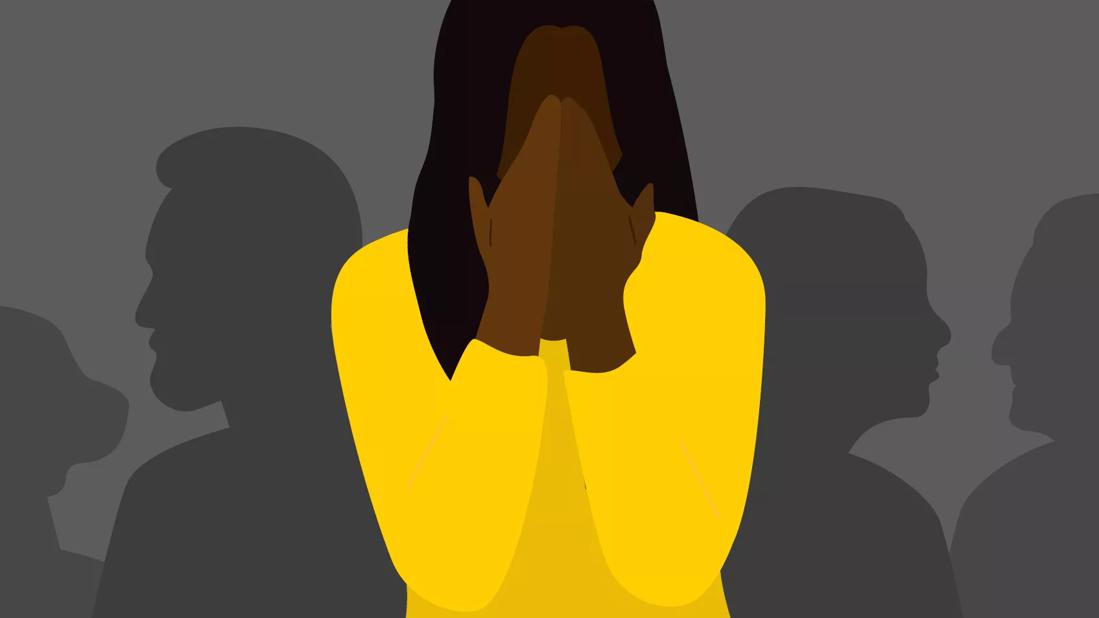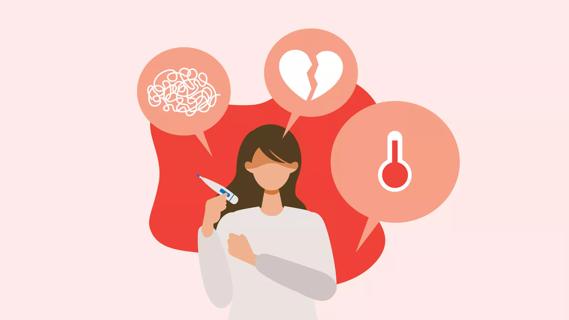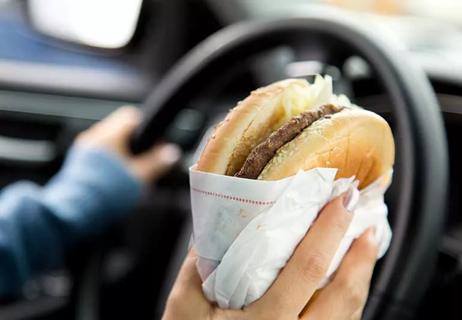HALT — hungry, angry, lonely, tired — is a reminder to check in with yourself

How are you feeling today?
Advertisement
Cleveland Clinic is a non-profit academic medical center. Advertising on our site helps support our mission. We do not endorse non-Cleveland Clinic products or services. Policy
Are you hungry? Did you get a good night’s sleep? Are you having a hard time letting go of something that made you angry recently? Or are you feeling a little left out?
When it comes to fulfilling your basic needs, it’s crucial to check in with yourself. These check-ins can be an important part of regulating your emotions and maintaining healthy coping mechanisms when problems surface.
If you’re in recovery or you’re in the early stages of sobriety, these check-ins are especially important for self-care and improving your self-awareness. One of the tools often used in rehab programs and 12-step meetings to achieve personal accountability is known as HALT.
Psychiatrist and addiction specialist David Streem, MD, explains how the HALT method works, why stressors can impede recovery and when you should seek assistance.
HALT is an acronym that stands for “hunger, anger, lonely, tired.” To use the HALT method, you check in with yourself periodically and ask yourself how you’re feeling in these four categories. Sometimes, check-ins can occur daily. Other times, you may check in with yourself hourly. How often you participate in the HALT method is up to you.
The importance of this method is that you stop (or, halt) what you’re doing and get at the root of how you’re feeling on a regular basis or whenever you’re triggered. This is to help alleviate the possibility of relying on a substance for relief or comfort by turning to healthier coping mechanisms whenever one of these four areas is threatened.
Advertisement
“HALT has two physical states — hunger and tired — and two emotional states — anger and lonely,” explains Dr. Streem. “It’s a good balance because you’re taking care of yourself physically and emotionally. In our busy world today, we often don’t do a great job of taking care of either.”
By focusing on these four areas, you’re paying closer attention to your basic needs. This is important because when our basic needs aren’t met, it can become difficult to determine what’s wrong. It’s in that confusion that we can start floundering for solutions, and no one likes to feel bad, right? And it’s inside that space that we start grasping for straws in order to feel better.
“There has been an understanding that the disease of addiction is rooted often in having trouble managing underlying negative emotions,” says Dr. Streem. “The biggest threat to a person’s sobriety and early recovery is ineffective coping strategies to manage those unpleasant emotions or physical states.”
Rather than letting our feelings run amok, HALT allows us to grab ahold of the wheel and control what’s happening from the driver’s seat.
For example, if you’re feeling irritable, what’s causing you to feel that way? Are you on edge because you stayed up too late and now you’re tired? Or are you irritable because you accidentally skipped lunch and it’s been several hours since you’ve eaten? If you know how to address your immediate need, you can find simple, healthy solutions. This can mean taking a short nap, having a healthy snack or working on sticking to a strict sleeping schedule that works for you.
“HALT is a reminder to take care of your physical and emotional health,” says Dr. Streem. “Asking yourself, ‘What is my physical state?’ and ‘What is my emotional state?’ can help offer clarity to any situation. And often, clarity is what’s needed to get you through the day.”
Knowing how to address all four categories of HALT is important. Here’s what you need to know:
Physical hunger can lead to irritability, anger or feelings of nausea. But nutritional deficiency can also apply to hunger.
“The brain is very particular about the types of energy sources it uses. It can’t use just anything that we put in our mouths,” says Dr. Streem. “So, you can be satiated in terms of your appetite, and yet your brain might not have all the building blocks and nutrition it needs to work effectively.”
If you’re not able to think clearly, you could make poor decisions, which could then lead to relapse. It’s important that you don’t skip meals, but it’s also important that you eat meals with mindfulness. Perhaps try the Mediterranean diet, or snack often throughout the day to balance out that feeling of hunger.
Dr. Streem also notes that taking a good general multivitamin daily — ones that taste good, make you smile and don’t feel like you’re taking medicine — can be beneficial. His personal favorite? Vitamins with cartoon characters like Flintstones®, Scooby-Doo® and more.
Advertisement
“Pay attention to the marketing and how it affects how you think about the vitamin you’re purchasing,” advises Dr. Streem. “If your vitamins don’t make you feel good and make you feel healthy, they’re probably not right for you.”
Anger can be an unpleasant and damaging emotion, but Dr. Streem emphasizes that it’s normal to feel angry — everybody does at one point or another.
“Just because you feel angry doesn’t mean there’s something wrong with you,” he says. “But chronic, persistent anger is unhealthy.”
It’s like sleep: We all know it’s good for you, but if you slept all day, that would be unhealthy. Like sleep, too much anger can negatively impact your life and make decision-making difficult. Anger becomes a problem when you have a hard time letting it go because it then seeps into other areas of your life.
“Focus on who’s in the driver’s seat,” says Dr. Streem. “When I’m upset and it’s time to move on to my next activity — to go home, to go to work — I should be able to turn that off and let it go in a real way, not just packing it down. That way, in my next activity, I can be present when I’m with my family or working with coworkers.”
Some healthy ways of coping with anger can include stress management, spirituality, prayer and meditation — which can help improve emotional and cognitive control over the decision-making process.
Advertisement
“If you can do that in a real way, then that demonstrates a level of self-management that a lot of people in the world never achieve,” says Dr. Streem.
“As a species, we are social organisms,” notes Dr. Streem. “When we find ourselves cut off from contact with other members of our social group or community, that’s another thing that can be very unhealthy.”
It’s no wonder social isolation has made recovery all the more difficult during the pandemic. When we’re surrounded by positive, influential people we have strong connections with, we’re less likely to participate in behaviors or succumb to negative influences that the group wouldn’t appreciate.
Of course, you can be lonely even when you’re surrounded by a lot of people, and that makes meaningful relationships all the more important.
“If you don’t have meaningful interactions with people, just being in their vicinity isn’t going to fulfill that need,” says Dr. Streem.
Finding social groups who share similar interests as you is one good step. Joining a 12-step community or another rehab program can also be beneficial, not just for accountability, but to establish meaningful relationships.
“Fatigue is like being hungry — it’s a condition that affects the brain,” says Dr. Streem.
Advertisement
Lack of sleep and sleep disorders like insomnia can worsen other psychological and mental health conditions like bipolar disorder, anxiety, depression and other mood disorders. And when mental health conditions go untreated, substance misuse can become prevalent, causing a cycle of unhealthy behavior and eventual relapse.
It’s important to maintain good sleep hygiene by attempting to go to bed on time and wake up around the same time every day. But if you’re struggling with nighttime anxiety or a sleep disorder, it’s important to seek medical attention. Doctors can prescribe treatments and nonaddictive medication to help.
Negative emotions can stimulate addiction centers in your brain.
“HALT is a wonderful reminder of the simplest things we often forget to do to take care of ourselves,” says Dr. Streem. “The point of HALT is to call people’s attention to the fact that you can’t ignore these things for very long. And if you have a psychiatric or substance misuse condition, that puts added risks into place.”
Checking in with yourself on a regular basis is important. But the largest challenges to sobriety are changes in environment, behavior and relationships. For example, if you’re traveling on vacation and you’re experiencing jet lag, you might find yourself missing meals or feeling more irritable. If something breaks in your house and you’re experiencing additional stress, you may be triggered in similar ways. During these moments, it’s important to HALT.
“These are things we all feel and experience,” says Dr. Streem. “But if we’re having trouble meeting the demands of these feelings, that’s when we may need some help from a therapist, a coach or someone who can help look at how we’re living our lives.”

Sign up for our Health Essentials emails for expert guidance on nutrition, fitness, sleep, skin care and more.
Learn more about our editorial process.
Advertisement

Even small moments of time outdoors can help reduce stress, boost mood and restore a sense of calm

Fill your coping toolbelt with healthy skills like getting outside, writing in a journal, volunteering, laughing or talking with a friend

We all experience some stress from time to time, but chronic stress can contribute to health issues like diabetes and cardiovascular disease

Getting outside, eating a healthy diet, taking up journaling, listening to music — even cuddling a pet — can provide stress relief

Give these 30+ grocery items a try to help find relief

In response to stress or danger, your brain responds by either defending itself, running away, stopping or reconciling

From nausea, weight gain and eczema, stress can affect your immune system in many ways

Stress hormones trigger cravings in an attempt to keep us safe from danger

Even small moments of time outdoors can help reduce stress, boost mood and restore a sense of calm

A correct prescription helps your eyes see clearly — but as natural changes occur, you may need stronger or different eyeglasses

Both are medical emergencies, but they are very distinct events with different causes